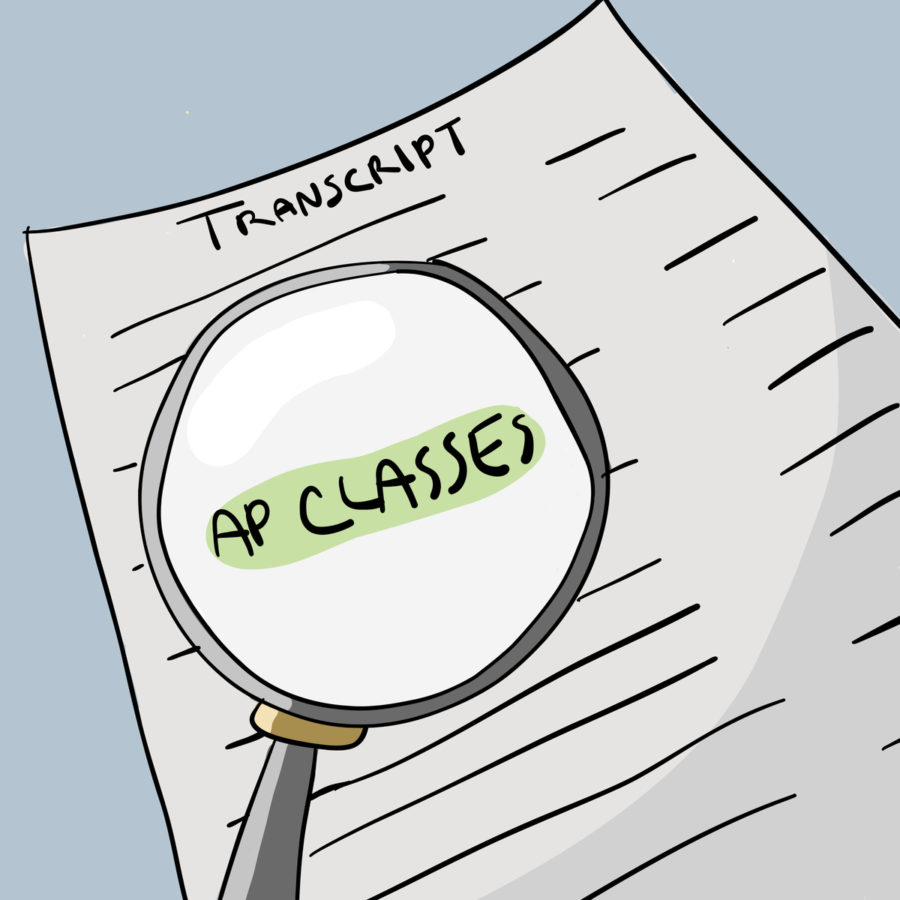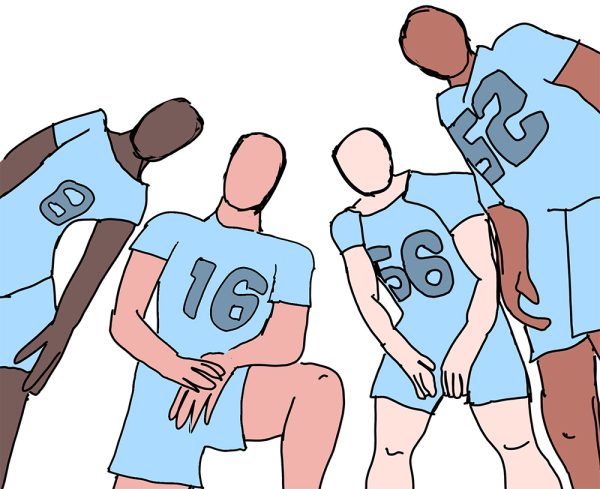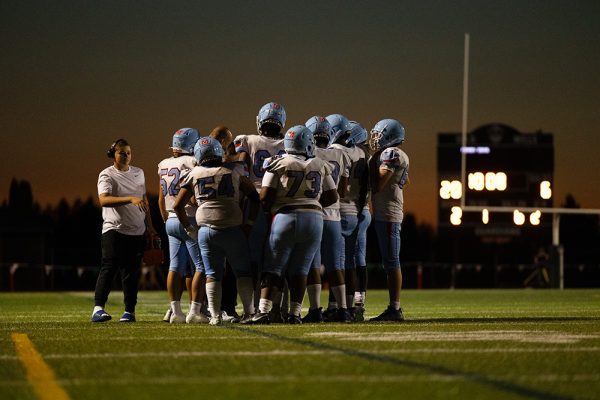AP classes help students prepare for college
Throughout high school, there are a variety of different classes to choose from. A big question students may ask themselves is, “What classes are best for college?”
Although every student has their own unique skills and every college looks for different talents, AP classes can have a positive impact on preparing for college and high school transcripts. It’s important to take a challenging course at least once throughout high school, as it can help you gain the skills needed for college.
AP classes give students an opportunity to earn college credit, which can mean they have a more intense course load and more homework. Throughout the course you take tests and write essays to prepare for the AP exam near the end of the year.
Santha Cassell is the instructional specialist here. Her job is to support student achievements in AP classes and support the AP teachers.
Cassell encourages AP classes for students, especially subjects within their interest.
“I would recommend students take AP classes if they are really curious and passionate about a subject matter,” Cassell said.
People might question whether AP classes actually help students to get into college and help with scholarships.
“AP classes are a way to build a strong transcript,” Cassell explained. “They want to see students who are willing to take academic risks and take on hard things.”
This doesn’t mean that you can’t take other classes such as art or pathways. Cassell believes it is important to do both.
“I think students should be going for a balanced transcript that satisfies their own personal curiosity and deepens their learning about what they really are into,” Cassell described. “The college board recommends five AP classes per high school career.”
AP Central is a website that college board uses to spread information. The AP Program collects data each year on AP exam performance and participation. Throughout this data from AP Central there is a common correlation between AP classes and college acceptance rates.
The AP Exam is optional, but it is in a students’ best interest to take it after taking the course, according to AP Central. The scoring for AP Exams is a 1-5. All colleges are different, but as taught in classes, the majority consider a 3 or higher to be a passing score and give you college credit.
In an article by AP Central called “Impacts of AP: More than a score”, they point out that even if students score a 1 or 2 on the AP Exam, they are more likely to enroll in a four-year college compared to academically similar students who didn’t take an AP course. Those with an average score of 2 have a 75% of enrolling whereas those who didn’t take an AP course have a 56%. You can see that students who take AP classes–no matter the exam score–have a higher chance of going to college and graduating in four years than those who don’t. Even if a student was to score a 1 on the exam, they still have a 63% chance of going to college whereas academically similar students with no AP classes have a 47% chance, so even if students don’t succeed in AP classes, they still gain academic skills.
In another article by AP Central called “Using AP in College Enrollment”, they talk about how most colleges, when looking through admissions, look for AP classes students have taken and use that to help them make their decision. Two thirds of admissions and enrollment leadership express that AP classes are extremely helpful when evaluating candidates. This demonstrates how important AP classes and a balanced transcript is for colleges.
Senior Ruby Taylor has taken six AP classes.
Taylor explains that although college classes are harder AP classes made her learn how to study better.
“It’s definitely prepared me to some extent,” Taylor said.
AP classes are not the only option though as dual credit classes also help build a good transcript.
Senior Luna Cummins has taken six AP and four dual credit classes.
“I would honestly recommend taking both because it’ll make your college life easier by cutting out the annoying required classes and training you to be ready for university-level material and workload.”
In AP classes, you learn many skills such as how to read efficiently, note-taking, essay-writing, and how to handle an extreme workload. Although they can be rigorous, they have more positives than negatives as both your skillset and transcript will benefit.
Lilah is a junior, and she/they are passionate about writing, softball and sleeping. People describe her as funny, chaotic and caring. She/they loves being a journalist because they like telling people’s stories.












